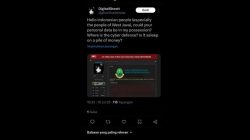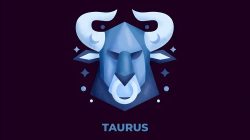The Rise of Data Literacy as a Career Superpower
In today’s digital age, every action we take online—whether it’s a click, a call, or a transaction—generates vast amounts of data. This data is no longer just numbers on a screen; it has become a powerful tool that shapes the future of careers and industries. Understanding and interpreting this information is quickly becoming a must-have skill across all professions, regardless of where you are in the world.
From boardrooms to classrooms and even community settings, the importance of data literacy is being recognized globally. Surveys conducted by leading organizations show that employers are increasingly seeking professionals who can analyze, visualize, and communicate data effectively. Whether you’re in technology, healthcare, business, education, or the nonprofit sector, having data skills opens up new opportunities and enhances your career prospects.
Why Data Science is Generating So Much Interest
There are several reasons why data science is gaining so much attention:
- Digital Transformation: Companies across all industries are moving towards digitization, which results in massive data generation.
- AI Integration: Artificial intelligence is now embedded in various aspects of life, from logistics to entertainment, making data analysis more critical than ever.
- Improved Decision-Making: Being able to understand and interpret data leads to better, faster, and more transparent decisions.
- Global Trends: A recent study called the Gallup Math Matters Study 2025 highlights that a majority of managers worldwide now see data science skills as essential for their teams.
What Employers Are Looking For
Gone are the days when relying solely on intuition or spreadsheets was enough. Today, hiring managers are looking for candidates with specific skills:
- Data Cleaning and Analysis: The ability to process and interpret large datasets.
- Financial Math Understanding: Knowledge of how numbers impact business decisions.
- Numeracy and Statistical Thinking: Strong foundational math and analytical abilities.
- Basic Programming Skills: Familiarity with languages like Python or R.
These skills are not exclusive to the tech industry. Even departments such as marketing, human resources, finance, and operations are seeking individuals who can extract insights from data.
What This Means for Professionals and Students
Whether you’re already working in a particular field or studying for a degree, developing data literacy can significantly boost your career. Educational programs and certifications in data science, analytics, and machine learning have become more accessible, allowing people from diverse backgrounds to gain these skills.
You don’t need to be a math expert to start. Many modern courses use relatable examples, such as social media algorithms, sports statistics, or apps that track spending, to make data science more approachable and engaging.
Starting Your Data Journey
Building data skills is easier than ever. Beginners can explore online platforms like Coursera, edX, Khan Academy, or Google’s Data Analytics Certificate for structured learning. Upskilling bootcamps and university programs, including those at prestigious institutions like IITs, offer tailored options for both students and working professionals.
Additionally, free tutorials on YouTube, GitHub, and community forums provide practical guidance. Start with Excel for basic data handling, then move to Python or R for more advanced analysis. You can also brush up on statistics through short videos or podcasts. Platforms like Kaggle allow users to test their skills through real-world data challenges without requiring prior experience.
While math might have seemed daunting in school, the fundamentals of data science are now more accessible and valuable. The ability to decode and harness data benefits individuals, industries, and countries at every stage of development.







